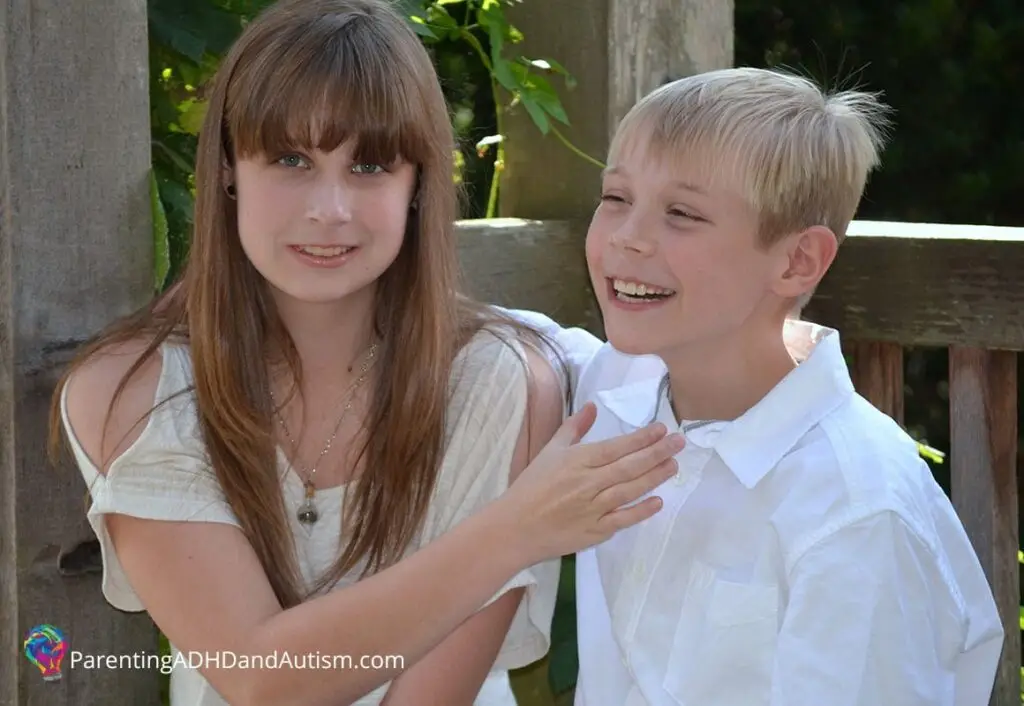Recognize the ADHD Effect on Family
So often, parents of a child with ADHD are consumed by their child's disability and special needs, and forget about themselves and the rest of the family. It's a crucial mistake that can cost you and your loved ones dearly, and affect your child with ADHD as well. ADHD affects the entire family, and that must be acknowledged and treated as well.
In our home, we have myself, my husband, my daughter (14), and my son with ADHD (11). My son's ADHD (and other special needs) affects all of us profoundly, but in different ways.
For me, his ADHD, Sensory Processing Disorder, and Learning Disabilities are emotionally and physically taxing. I have fibromyalgia, and stress exacerbates my symptoms and pain. As well, I am often in a state of emotional turmoil, working so diligently to help my son and feeling his pain as only a mother can. I try to take time for myself, but don't do it as often as I should. Sometimes, I steal extra moments in the bathroom. Sometimes, I go for a walk. Sometimes, I visit the local bakery for sweet comfort. Sometimes, I get a pedicure. I always vegetate in front of the TV each night after the kids are in bed (whether the dishes are done and the house is clean, or not) — this is my time to stop thinking and to unwind. And I always have a stash of sugar-free chocolate in my possession.
The detriment of our kid's ADHD on his dad is seen in our marriage. We often don't see eye-to-eye on addressing behaviors and discipline, and that fuels a lot of arguments between us. I suspect it affects him in other ways too, but he's not open about it.
My daughter is really the greatest casualty of ADHD in our family. Her brother's ADHD behaviors cause her significant anxiety. It has actually reached a level where a meltdown from her brother will cause her to have a meltdown of her own, usually in the form of a panic attack. She's so afraid of public meltdowns that she tries to get out of going anywhere with her brother. It's so tough to watch her struggle. Unfortunately, we just can't insulate her from ADHD.
Then, of course, there's my sweet boy. Obviously, ADHD affects his life in consistent and profound ways. He can never get away from it, not even for a moment, because it's part of his physiology. It goes where he goes, relentlessly. ADHD can be managed though, and we are working on that a little every day.
Take Action
So what can we do to mitigate ADHD's affect on our families? That's a tough question, and there is no simple answer. In fact, the answer will be different for each family. And the answer isn't really an answer in the true sense at all — it's more like little doses of relief and improvement. Here are some ideas to try with your family:
- Make sure each family member gets some uninterrupted alone time. Hide out in your bedroom and demand to not be disturbed. Take a walk alone. Go for a scenic drive alone. Have your spouse/partner (or a friend or extended family member, if you're a single parent) take the kids out of the house for a few hours. There are many ways to accomplish this, the trick is to not make excuses to not do it.
- Have the entire family participate in therapy. Even if your neurotypical child doesn't react as significantly to their sibling's ADHD behaviors, ADHD is affecting them. Counseling for each family member will be beneficial to learn both strategies to deal with their family member's ADHD and how to cope with the disruption ADHD brings to your home.
- Plan family activities where your child with ADHD can be successful. Building family togetherness is just as important as alone time for each individual. Success for the ADHD child will not only boost their self-esteem, but it will also promote a positive association for family members who witness it. It's important that everyone in the family recognize that there can be good times despite ADHD as well. Team building is important in the corporate world, and it's important in your family.
- Pay special attention to siblings. My daughter's favorite thing to do right now is go somewhere alone with me. She requests it at least once every week. She needs time when there's no potential for ADHD to muck up our plans or escalate her anxiety. We do different things together, like go to the bookstore, see a movie, get a sweet treat, hit the mall, or enjoy a pedicure. What you do together isn't important — showing your child the same intensity of interest you show their sibling is.
- Meet with others with ADHD in their family for support. If you have someone to talk with about having a child with ADHD in your family, you are less likely to need to focus on it so much with other family members. Attend a formal support group meeting, or just grab coffee with others who share a similar parenting experience. Those people are there to talk about ADHD; your family has a greater purpose.
ADHD can overwhelm you. It's the constant elephant in the room. It's crucial to not let it have the control in your family.
What do you do to mitigate the affect ADHD has on your family members?





